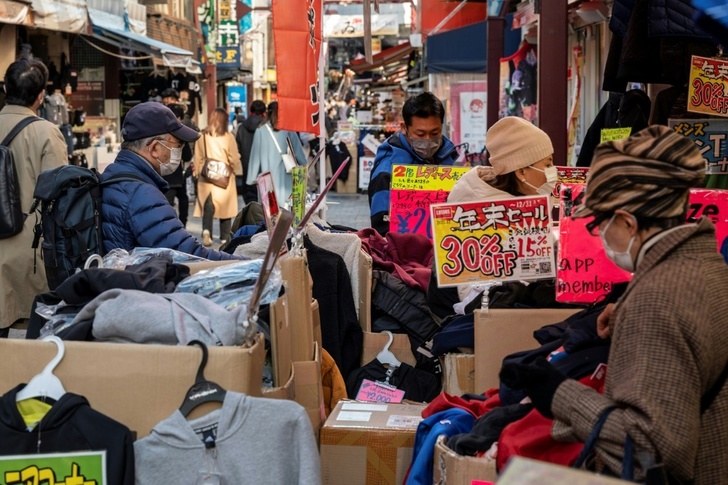Japan's consumer prices rose 4.2 percent in January from a year earlier, a level not seen since September 1981, fuelled in part by higher energy bills, government data showed Friday.
The reading comes with traders awaiting an appearance in parliament by Bank of Japan chief nominee Kazuo Ueda later in the day.
The 4.2 percent rise, which excludes volatile fresh food, is well below the still sky-high levels that have sparked concern in the United States, Britain and elsewhere, but far exceeds the Bank of Japan's longstanding inflation goal of two percent.
The market had expected a 4.3 percent increase in January prices.
The latest data comes after a 4.0 percent jump in December that was the highest since December 1981.
When both fresh food and energy prices are excluded, the figure for January is 3.2 percent.
Increases in electricity and gas bills, as well as telecommunication fees and price hikes for a range of processed foods contributed to the January acceleration, the government data showed.
However, analysts expect that government measures to address fuel costs will help curb inflation in February.
The figures have added to the pressure on Japan's central bank to consider tightening its longstanding super-loose monetary policy.
But the central bank has so far bucked the trend set by peers abroad who have hiked rates to tackle rising prices.
Outgoing Governor Haruhiko Kuroda argues the current price rises are linked to temporary distortions like the war in Ukraine, and that the bank should stay the course until sustained rises linked to factors like wage hikes are seen.
In December, the central bank said it expected inflation to hit 3.0 percent for fiscal 2022, up from the 2.9 percent it predicted in October.
But it forecast inflation of only 1.6 percent for the following year, rising to 1.8 percent for fiscal 2024.
In November, officials shocked the markets by widening the band in which they allow rates for 10-year government bonds to move.
They said the decision would "improve market functioning", though the new level was immediately tested.
The persistent differences between the Japanese central bank and the US Federal Reserve, which aggressively hiked rates last year, have helped weaken the yen against the dollar.
News of the government's decision to nominate economics professor Ueda as Bank of Japan chief sent the yen briefly rallying against the dollar.
But the Japanese currency eased after the market digested the news, and Ueda has told reporters "the current BoJ policy is appropriate" and "it's important to maintain monetary easing policy for now."
kh/sah/cwl
© Agence France-Presse
Your content is great. However, if any of the content contained herein violates any rights of yours, including those of copyright, please contact us immediately by e-mail at media[@]kissrpr.com.
Source: Story.KISSPR.com

